Disposable Plastic Alternatives: Eco-Friendly Household Items
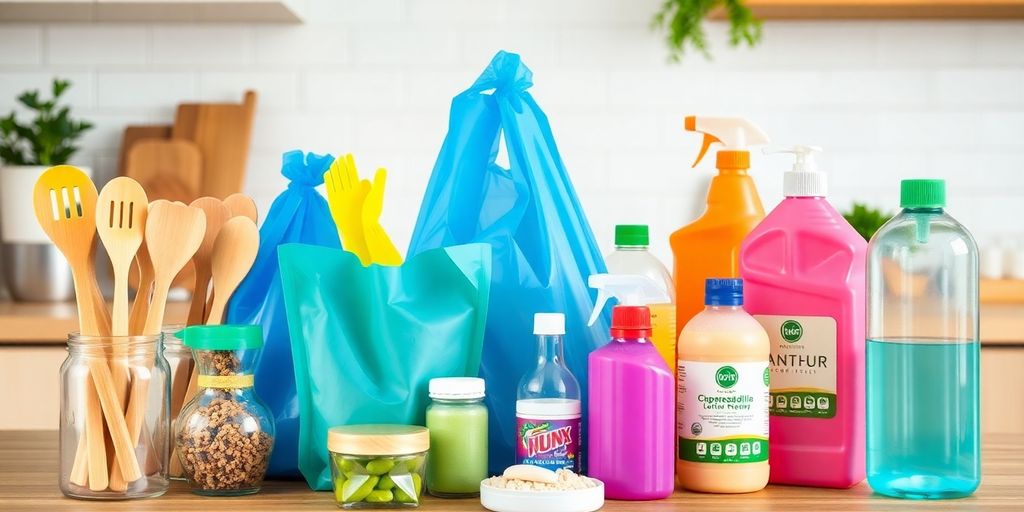
With the world facing a plastic crisis, many of us are looking for ways to reduce our plastic use at home. Switching to disposable plastic alternatives can make a significant difference. This article explores various eco-friendly household items that can replace common plastic products, helping you create a more sustainable living space without sacrificing convenience. Let’s dive into some practical alternatives that are not only better for the planet but also for your health.
Key Takeaways
- Switching to reusable food storage containers can cut down on single-use plastics in the kitchen.
- Bamboo toothbrushes and shampoo bars are great bathroom alternatives that help eliminate plastic waste.
- Using stainless steel straws and compostable cutlery makes dining out more eco-friendly.
- Innovative packaging options like beeswax wraps and cardboard can replace traditional plastic wraps and bags.
- Natural fiber cloth and glass containers are durable, reusable options for everyday household use.
Sustainable Kitchen Solutions
Let’s face it, the kitchen can be a real hotspot for disposable plastics. But it doesn’t have to be! There are tons of easy swaps you can make to create a more eco-friendly cooking space. It’s all about making small changes that add up over time. I’ve been slowly switching things out in my own kitchen, and it’s been surprisingly simple.
Reusable Food Storage Containers
Ditch the plastic wrap and single-use containers! Seriously, this is one of the easiest changes you can make. I started by investing in a set of glass containers with airtight lids. They’re great for leftovers, meal prepping, and even packing lunches. Stainless steel lunch boxes are also a fantastic option – super durable and easy to clean. Plus, they don’t leach any weird chemicals into your food. I also love using mason jars for storing dry goods like rice, beans, and pasta. You can even bring your own containers to bulk food stores to reduce packaging waste.
Natural Cleaning Products
Okay, so cleaning products can be a sneaky source of plastic waste. Think about all those spray bottles! But the good news is, there are plenty of natural and eco-friendly alternatives out there. I’ve been experimenting with making my own cleaning solutions using simple ingredients like vinegar, baking soda, and essential oils. It’s surprisingly easy, and you can customize the scents to your liking. Plus, you’re avoiding all those harsh chemicals that are often found in conventional cleaners. Another great option is to buy concentrated cleaning solutions that you can dilute in your own reusable bottles. This cuts down on plastic waste significantly.
Eco-Friendly Utensils
Plastic utensils are a major culprit when it comes to single-use waste. Think about all those plastic forks and spoons that end up in landfills after just one use! Luckily, there are plenty of eco-friendly alternatives to choose from. Bamboo utensils are a great option – they’re lightweight, durable, and biodegradable. Stainless steel utensils are another fantastic choice – they’re super durable and can last for years. You can even find compostable cutlery made from plant-based materials like cornstarch. Keep a set of reusable utensils in your bag or car so you’re always prepared when you’re on the go.
Switching to sustainable kitchen solutions doesn’t have to be expensive or time-consuming. Start with small changes and gradually replace your disposable plastic items with eco-friendly alternatives. You’ll be surprised at how easy it is to create a more sustainable kitchen and reduce your environmental impact.
Bathroom Essentials Without Plastic
It’s time to rethink your bathroom routine! So many everyday items are made of plastic, but thankfully, there are great alternatives that are better for the planet. Let’s explore some simple swaps you can make.
Bamboo Toothbrushes
Switching to a bamboo toothbrush is one of the easiest changes you can make. Bamboo is a fast-growing, sustainable resource, and the handles are biodegradable. Just remember to remove the nylon bristles (which are not biodegradable) before composting the handle. It’s a small change that makes a big difference.
Shampoo Bars
Tired of those bulky plastic shampoo bottles? Shampoo bars are the answer! They lather up just like liquid shampoo, but without the plastic packaging. Plus, they’re great for travel since you don’t have to worry about leaks. You can find shampoo bars for all hair types, from dry to oily, and they often last longer than bottled shampoo.
Reusable Feminine Products
Single-use pads and tampons contribute a lot of waste. Consider switching to reusable options like:
- Menstrual cups: These silicone cups can be used for up to 12 hours and last for years.
- Cloth pads: Made from soft, absorbent fabrics, cloth pads are comfortable and washable.
- Period underwear: These absorbent undies are a convenient and discreet option.
Making the switch to reusable feminine products might seem intimidating at first, but it’s a game-changer for reducing waste and saving money in the long run. Plus, many people find them more comfortable than traditional disposable products.
Eco-Conscious Dining Alternatives

It’s time to rethink how we eat, especially when it comes to disposable plastics. Making small changes in our dining habits can significantly reduce our environmental impact. Let’s explore some eco-friendly alternatives that are both practical and stylish.
Bamboo Tableware
Bamboo tableware is a fantastic alternative to plastic or even traditional dishware. Bamboo plates are lightweight, durable, and bring a natural aesthetic to any meal. They’re perfect for picnics, parties, or everyday use. Plus, bamboo is a rapidly renewable resource, making it a sustainable choice. You can find full sets, including plates, bowls, and even serving dishes, all made from this versatile material.
Stainless Steel Straws
Single-use plastic straws are a major source of pollution. Switching to stainless steel straws is an easy and effective way to reduce waste. These straws are reusable, easy to clean, and come in various sizes and styles. They’re great for everything from smoothies to cocktails. Plus, they’re durable and will last for years, making them a worthwhile investment. You can even get cleaning brushes specifically designed for stainless steel straws to make maintenance a breeze.
Compostable Cutlery
For situations where reusable cutlery isn’t practical, compostable cutlery is a great option. Made from materials like cornstarch or bamboo, these utensils break down naturally in a compost environment. They’re perfect for parties, takeout, or any event where disposable cutlery is needed. Just be sure to dispose of them properly in a compost bin to ensure they break down correctly. Here are some reasons to switch to bamboo cutlery:
- Reduces plastic waste
- Made from renewable resources
- Breaks down naturally in compost
Opting for eco-conscious dining alternatives is a simple yet impactful way to reduce your environmental footprint. By making small changes, such as switching to bamboo tableware, stainless steel straws, and compostable cutlery, you can contribute to a more sustainable future. Every little bit counts, and together, we can make a big difference.
Innovative Packaging Options
Okay, so we’ve all seen the mountains of plastic packaging that comes with, well, pretty much everything these days. It’s kind of depressing, right? But the good news is, people are getting creative and coming up with some seriously cool alternatives that don’t involve choking the planet. Let’s take a look at some of them.
Beeswax Wraps
Beeswax wraps are a fantastic alternative to plastic wrap. They’re made from cotton cloth coated with beeswax, tree resin, and jojoba oil. You can use them to wrap sandwiches, cheese, fruits, veggies, or cover bowls. Just use the warmth of your hands to mold the wrap around the item. They’re reusable, washable (with cool water and mild soap), and when they’ve finally reached the end of their life, they’re compostable. I’ve been using them for a while now, and they’re great, though they can be a little tricky to clean sometimes.
Cellulose Food Bags
Cellulose food bags are made from wood pulp. They’re biodegradable and compostable, making them a much better option than plastic bags for storing snacks, sandwiches, and other food items. They’re also transparent, so you can easily see what’s inside. I’ve found they’re not quite as durable as plastic bags, so you have to be a little more careful with them, but the eco-friendliness is worth it.
Cardboard Packaging
Cardboard is a classic for a reason. It’s recyclable, compostable, and made from a renewable resource (trees, obviously, but hopefully from sustainably managed forests). More and more companies are switching to cardboard packaging, which is a huge step in the right direction. Plus, cardboard is super versatile. It can be molded into all sorts of shapes and sizes, and it’s easy to print on. I’ve noticed a lot of online retailers are using cardboard boxes with paper tape now, which is awesome. It’s a small change that makes a big difference.
Switching to innovative packaging options is not just a trend; it’s a necessity. By choosing beeswax wraps, cellulose bags, and cardboard packaging, we can significantly reduce our reliance on plastic and create a more sustainable future. It’s about making conscious choices that benefit both us and the planet.
Durable Materials for Everyday Use
Glass Containers
Glass is pretty amazing. It’s not biodegradable, but it can be recycled over and over without losing quality. Plus, lots of food already comes in glass jars, so you can just clean them out and reuse them for storing leftovers or buying stuff in bulk. I’ve even seen people decorate them and turn them into homemade gifts. It’s a cheap and easy way to cut down on waste.
Stainless Steel Products
Stainless steel is a workhorse. It lasts forever, doesn’t rust, and you can recycle it completely. That’s why it’s so popular for reusable water bottles, food containers, and cutlery. I switched to stainless steel straws a while back, and I can’t believe I ever used plastic ones. They’re so much easier to clean, and I don’t have to worry about them breaking.
Natural Fiber Cloth
Natural fiber cloths are great for replacing plastic bags and wraps. You can find sustainable clothing made from organic cotton, hemp, or bamboo. These materials won’t shed plastic fibers when washed. I use old cotton t-shirts as cleaning rags instead of paper towels. They work just as well, and I can just throw them in the wash when I’m done. Felted or recycled wool is also a versatile material for children’s toys and household containers.
Switching to durable materials might seem like a small thing, but it really adds up over time. It’s about making conscious choices to reduce our reliance on plastic and create a more sustainable home.
Here’s a quick comparison of some durable materials:
- Glass: Recyclable, reusable, inert
- Stainless Steel: Durable, rust-resistant, recyclable
- Natural Fibers: Biodegradable, renewable, compostable
Child-Friendly Eco Products
It’s never too early to introduce sustainable habits! Finding eco-friendly alternatives for kids’ products is easier than ever, and it’s a great way to teach them about caring for the planet. Plus, many of these options are safer and healthier for your little ones.
Bamboo Kids’ Tableware
Say goodbye to plastic plates and cups! Bamboo tableware is a fantastic alternative. It’s durable, lightweight, and naturally antibacterial. Plus, it’s biodegradable, so you can feel good about its impact on the environment. We switched over a year ago, and honestly, the bamboo spoons have held up surprisingly well to toddler abuse.
Natural Fiber Toys
Many traditional plastic toys contain harmful chemicals. Opting for toys made from natural fibers like organic cotton, wool, or sustainably sourced wood is a much better choice. These toys are often softer, safer, and more engaging for children. Plus, they can be composted at the end of their life, reducing waste. Felted or recycled wool is a versatile, safe, and compostable material for children’s toys.
I remember when my daughter was little, she had this amazing wooden train set. It wasn’t just fun to play with; it also felt good knowing it wasn’t contributing to plastic pollution. It’s those small choices that really add up.
Here’s a quick comparison of common toy materials:
| Material | Pros | Cons |
|---|---|---|
| Plastic | Durable, inexpensive | Can contain harmful chemicals, not biodegradable |
| Natural Fibers | Safe, biodegradable, often softer | Can be more expensive, may not be as durable as some plastics |
| Sustainably Sourced Wood | Durable, natural, can be composted | Can be more expensive, requires responsible sourcing practices |
Reusable Snack Bags
Ditch the disposable plastic baggies! Reusable snack bags are a game-changer for packing lunches and snacks. They come in various sizes and materials, like cotton or silicone, and are easy to wash and reuse. Plus, they help reduce waste and save money in the long run. My kids love picking out their favorite patterns, and it makes packing snacks a little more fun. Consider a compostable cleaning bundle to keep them fresh.
Home Cleaning Without Plastic

Biodegradable Cleaning Supplies
Switching to biodegradable cleaning supplies is a simple yet impactful change. Many conventional cleaners contain harsh chemicals that are harmful to both the environment and your health. Look for products that use plant-based ingredients and come in minimal or recyclable packaging. You might be surprised at how effective these natural alternatives can be.
- Less toxic for your family and pets
- Reduces pollution in waterways
- Supports sustainable practices
It’s worth noting that some "green" cleaners can be a bit pricier upfront, but they often concentrate, meaning you use less per cleaning session. Plus, the peace of mind knowing you’re not exposing your family to harmful chemicals is priceless.
Natural Sponges
Ditch those synthetic sponges that end up shedding microplastics into our water systems! Natural sponges, like sea sponges or those made from cellulose, are a fantastic alternative. They’re absorbent, durable, and, best of all, compostable at the end of their life. Plus, they often last longer than their plastic counterparts, making them a cost-effective choice in the long run.
- Compostable and biodegradable
- Naturally absorbent
- Often more durable than synthetic sponges
Refillable Cleaning Bottles
One of the easiest ways to reduce plastic waste in your cleaning routine is to switch to refillable bottles. Instead of buying a new plastic bottle of cleaner every time you run out, purchase a concentrate or make your own cleaning solutions and refill your existing bottles. Many companies now offer concentrates in cardboard or glass packaging, further minimizing your environmental impact.
- Reduces plastic waste significantly
- Often more economical in the long run
- Allows for customization of cleaning solutions
| Cleaner Type | Refill Option |
|---|---|
| All-Purpose Cleaner | Concentrated refills, DIY vinegar solutions |
| Dish Soap | Solid dish soap bars, concentrated liquid refills |
| Laundry Detergent | Powdered detergent, laundry sheets |
Wrapping It Up
Switching to eco-friendly alternatives for disposable plastics isn’t just a trend; it’s a necessary step for our planet. Every little change counts, whether it’s using a bamboo toothbrush or opting for glass containers instead of plastic. Sure, it might take a bit of effort to adjust your habits, but the benefits are huge. Not only do these alternatives help reduce waste, but they also often last longer and can be safer for your health. So, next time you’re about to grab that plastic item, think about what you can swap it for. Together, we can make a difference, one small change at a time.
Frequently Asked Questions
What are some eco-friendly alternatives to plastic bags?
You can use reusable bags made of cloth or canvas instead of single-use plastic bags.
How can I store food without using plastic?
Try using glass containers, metal tins, or silicone bags for food storage.
Are bamboo products really better for the environment?
Yes, bamboo grows quickly and is biodegradable, making it a great alternative to plastic.
What can I use instead of disposable cleaning sponges?
Natural sponges, loofahs, or reusable cloths can replace disposable sponges.
How do I choose eco-friendly cleaning products?
Look for cleaning supplies that are biodegradable and come in non-plastic packaging.
What are some sustainable options for kids’ items?
Bamboo tableware, natural fiber toys, and reusable snack bags are great choices for children.

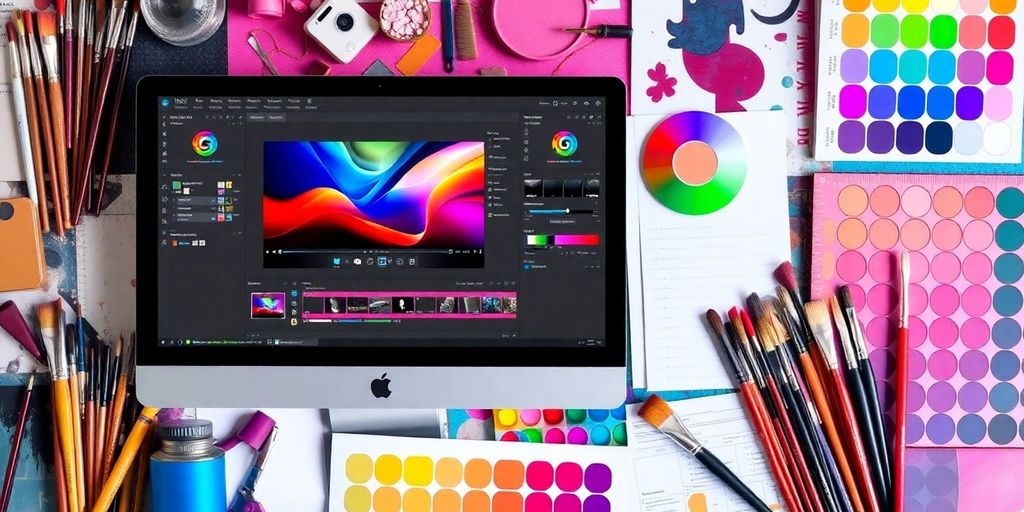
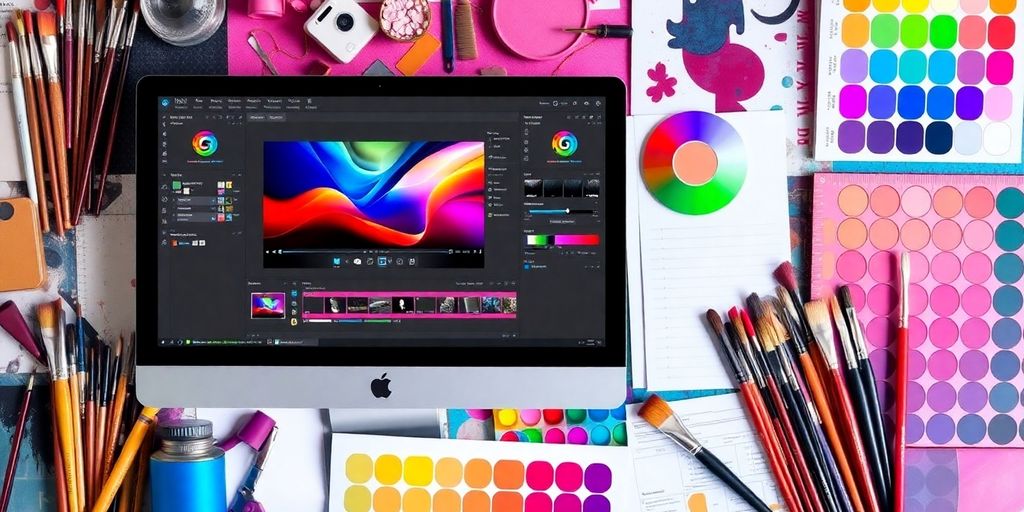
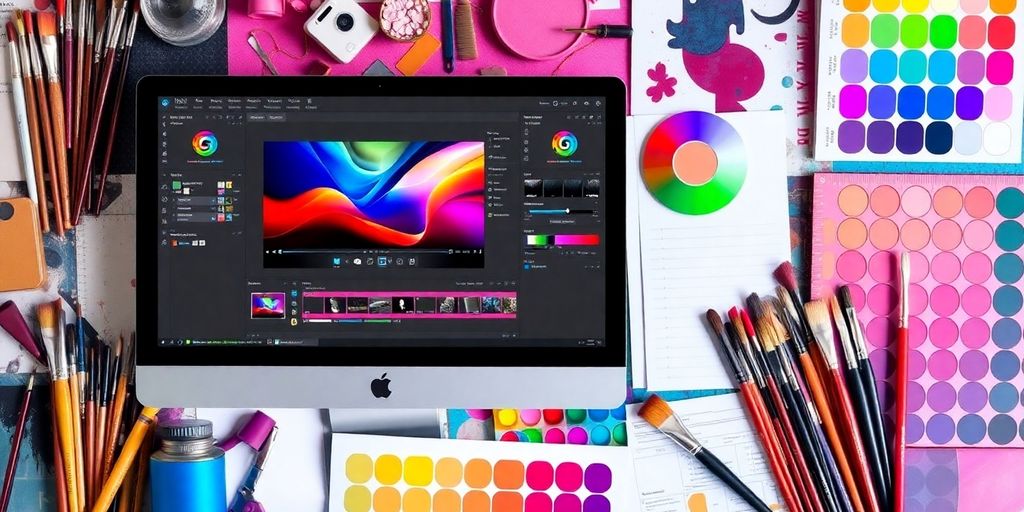
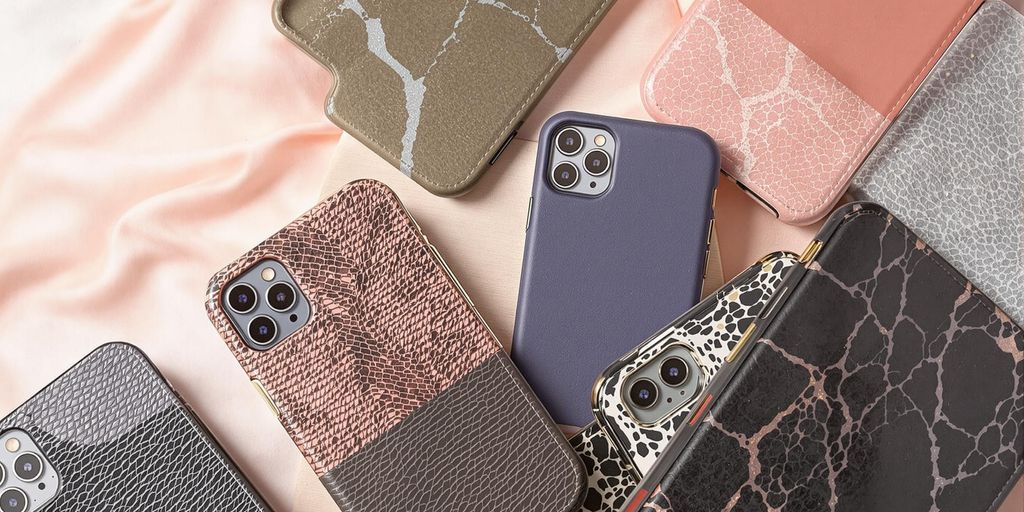
Responses